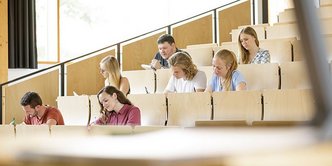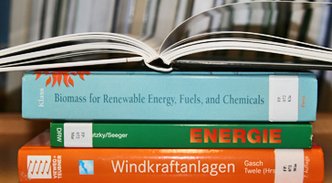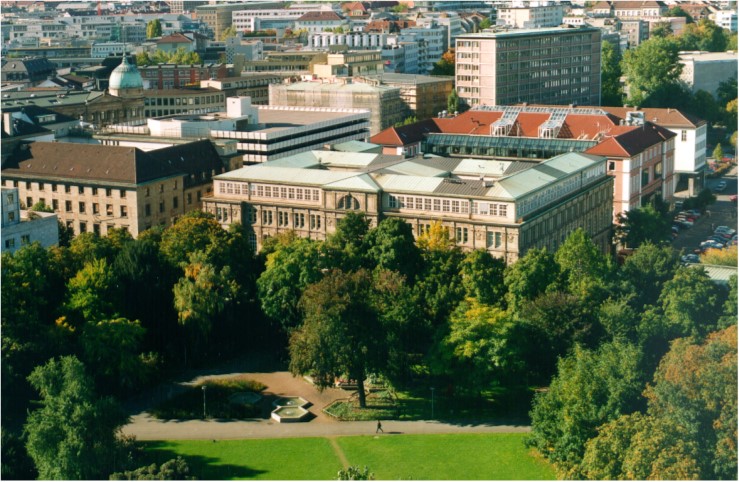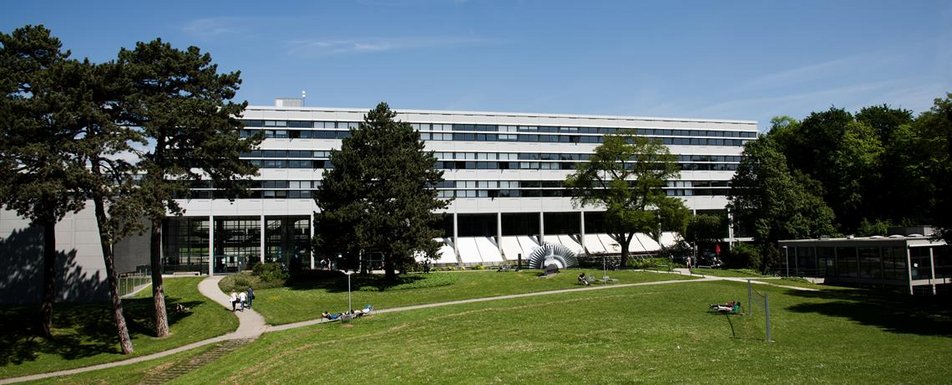HFT’s Master program Sustainable ENergy CompetenCE (SENCE) is offered in cooperation with the Universities of Applied Sciences Rottenburg and Ulm. A combination of these three institutions’ teaching and research skills enables us to offer a unique curriculum covering renewable energy technologies, energy economics, and related subjects in both theory and practice.
15 July
15 April (for non-EU citizens)
4 Semester
Master of Science (M. Sc.)
The first semester of SENCE is dedicated to course work, mainly in Rottenburg and Stuttgart, with a focus on sustainable energy technologies (namely wind, solar, hydro, biomass), energy economics, and basic management courses. Over the course of the second semester, students work on two projects, which can be completed either in research groups at one of the three SENCE universities, international partner universities, or with energy suppliers, engineering offices, or public authorities.
The third semester is structured along a series of block seminars, in which students are introduced in-depth to scientific work methods and for example work on “real” research proposals, while the fourth semester concludes with the Master thesis, which can be completed in cooperation with a company as well as in a research group, either at one of the three SENCE universities or any other research institution.
Project work
The SENCE program is project and research oriented. Students learn on the job, e.g., by completing two projects in semester 2, by contributing to research proposals and writing business plans in semester 3, or by writing a Master thesis in a resarch group or the private sector for a full semester.
Economics and interdisciplinary skills
A particular challenge of today’s sustainable energy technologies, energy economics and energy systems design is the relevance of interdisciplinary work in almost all sub-fields. In addition to a sound specialist knowledge and related analytical skills, SENCE courses therefore strengthen students’ abilities to manage teams or perform basic tasks in business development.
SENCE students work on highly relevant projects. Examples of recently completed projects in semester 2 include the following:
- Conception of an operator-oriented guideline for micro smart grids in residential areas
- Development of a model for noise levels of heat pumps
- Development of a yield calculator for PV systems up to 750 kWp
- Typology of neighbourhoods for sustainable energy supply
- Effects of climate change on the building sector in Stuttgart at the example of the district of Stöckach
- Anaerobic utilisation of the organic fraction of municipal solid waste (OFMSW)
- Analysis and evaluation of energy concept variants with regard to international sustainability principles and local Chinese practices
- Catalogue of requirements for heating and sanitation in apartment buildings
- Concept for employee-based financing of renewable energy plant
Above-average Bachelor’s degree or equivalent in a scientific or technology-oriented program. After filing their application, promising candidates are invited for an interview (by email and mail), which will typically be held either in Stuttgart, Rottenburg or Ulm. These interviews are a mandatory part of the admission process.
For International applicants: Please note that most courses will be held in German. Thus, sufficient German language skills are a precondition for your successful application (at least DSH-2 or TestDAF -TDN 4,0).
Before submitting your application, please contact the Studienkolleg – Center for International Students at Hochschule Konstanz. Studienkolleg will validate your paperwork to make sure that you meet all necessary conditions. Please find further information under:
https://www.htwg-konstanz.de/en/studying/center-for-international-students/start-page/
After a successful completion of this process, you are invited to apply for the SENCE program online. An internal examination board will review all incoming applications and draw up a shortlist of candidates to be invited for interviews.
SENCE graduates are experts in the planning and implementation of modern energy concepts/systems and thus highly seeked for positions in business, science, and public administration. Employers of SENCE alumni include manufacturers of energy-related equipment, companies with energy-intensive production processes, utilities, engineering offices, larger municipalities, county, state or federal government. Furthermore, SENCE offers ideal preconditions for an academic career – about 20% of a class remain in academia after having completed their degree and pursue a Ph.D thesis.
Department of Building Physics | Master SENCE
| News | Building physics | Climate Engineering | Building physics | SENCE | Facilities | Projects | Personnel |
![[Image: Foto: A. Körner] Zentrum für Bauphysik](/fileadmin/Dateien/Bauphysik/_processed_/b/9/csm_MA-SENCE_ZFB_Treppenhaus1_de189f92d8.jpg)
![[Image: Foto pixabay] Drei Glühbirnen vor Wolken](/fileadmin/Dateien/Bauphysik/_processed_/c/e/csm_MA-SENCE_Intro1_9d7610670c.jpg)
![[Image: Foto Hochschule Rottenburg] Eine Maschine](/fileadmin/Dateien/Bauphysik/_processed_/e/9/csm_MA-SENCE_Intro2_f3f8a1a298.jpg)
![[Image: Foto pixabay] Vier Windräder](/fileadmin/Dateien/Bauphysik/_processed_/5/6/csm_MA-SENCE_Intro3_e5eb4bb6ab.jpg)
![[Image: Foto Hochschule Rottenburg] Ein Fachwerkhaus und ein Steinturm der Hochschule Rosenheim](/fileadmin/Dateien/Bauphysik/_processed_/6/8/csm_MA-SENCE_Bild6_b813e0fd63.jpg)
![[Image: Foto Hochschule Rottenburg] Eine Gruppe junger Frauen sitzt in der Natur und lernt](/fileadmin/Dateien/Bauphysik/_processed_/9/4/csm_MA-SENCE_Bild7_eefa6c9c54.jpg)


![[Image: Foto Hochschule Rottenburg] Studierende bedienen Maschinen](/fileadmin/Dateien/Bauphysik/_processed_/f/8/csm_MA-SENCE_TitelSchwerpunkte_031a052d6c.jpg)
![[Image: Foto pixabay] Solaranlagen und Windräder](/fileadmin/Dateien/Bauphysik/_processed_/6/d/csm_MA-SENCE_Intro4_71773baaeb.jpg)

![[Image: Foto Hochschule Rottenburg] Die Hochschule Rosenheim](/fileadmin/Dateien/Bauphysik/Master-Sustainable-Energy-Competence/MA-SENCE_HFR_Campus.jpg)
